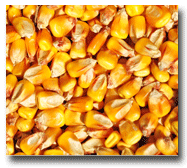Connecticut Syngenta Viptera Corn Lawsuits Recover Losses for Farms and Agricultural Businesses - Attorneys Handling Connecticut Syngenta and Duracade Lawsuits Offer No-Cost, No-Obligation Viptera Corn Case Review for Businesses in Connecticut

Farmers, grain distributors, grain elevators, and corn exporters in Connecticut and throughout the nation are filing Syngenta Viptera corn lawsuits to recover losses resulting from Syngenta’s promotion of Viptera corn seed. Viptera corn lawsuits that have already been filed allege that Syngenta, a global agribusiness, engaged in a marketing campaign which purposely misled farmers, urging them to use genetically modified Agrisure Viptera and Agrisure Duracade corn seed prior to the products’ approval for import by China. Connecticut Viptera lawsuits assert that in choosing to bring Viptera corn seed to market prior to approval by China (a major importer of U.S. corn) Syngenta crippled the American corn market.
Since November 2013, China has rejected entire shipments of corn that test positive for any trace of Viptera. As a result, domestic corn prices have fallen across the board and the U.S. has lost a significant export market. Furthermore, the entire U.S. corn supply has been contaminated by Viptera and Duracade, through cross-pollination in the fields and consolidation of corn crops in grain elevators. The presence of Viptera and Duracade corn has resulted in widespread market instability and a huge loss of revenue for the American corn industry. To date, plaintiffs in Syngenta GMO lawsuits are claiming $1.14 billion in losses in federal courts, and the National Grain and Feed Association (NGFA) estimates that farmers, distributors, and exporters may face as much as $3.4 billion in losses in the 2014-2015 season. A realistic fear has surfaced that the GMO trait in question, MIR 162, will surface in other crops. The economic effects of Syngenta’s actions will continue to harm Connecticut corn farmers, distributors, and exporters for years to come.
Syngenta, a Swiss agribusiness that operates in 90 countries across the globe, reported annual sales of $14.7 billion during 2013. Syngenta allegedly invested 5-7 years and $200 million into developing the genetic modification known as MIR 162 that distinguishes Viptera and Duracade seeds. Aware that China had not yet approved GMO corn grown from seeds featuring MIR 162, Syngenta launched marketing campaigns designed to encourage farmers to plant Viptera seeds. Connecticut Syngenta corn lawsuits assert that Syngenta willfully misrepresented the situation, implying that China was on the cusp of approving Viptera corn, when in fact that has never occurred.
The entire corn industry, ranging from individual farmers to major exporters, has been harmed by the fallout from Viptera corn. Large agricultural companies such as Cargill, Trans Coastal Supply Co. and Bunge North America are already involved in Viptera corn lawsuits. Connecticut farms are filing Syngenta class action lawsuits, seeking to recover their losses and halt the production and marketing of Viptera MIR 162 corn seed. Major midwestern law firms with proven expertise in litigation against multinational conglomerates are now investigating claims against Syngenta. Attorneys handling Connecticut Syngenta GMO lawsuits provide free case reviews to grain businesses who have sustained losses. Connecticut Syngenta Viptera corn lawyers believe that Connecticut farmers may be entitled to real compensation through a Syngenta class action lawsuit.

Syngenta Viptera Corn

Connecticut Syngenta GMO Lawsuits

Connecticut Syngenta Class Action Lawsuit

Syngenta Viptera Lawsuit FAQs for Businesses in Connecticut





 OnderLaw, LLC -
OnderLaw, LLC -